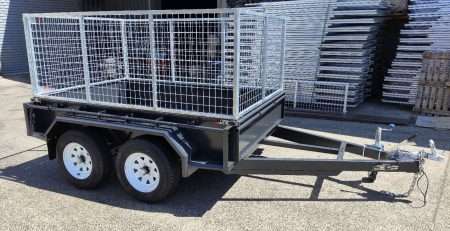
No More Leaks: Effective Solutions for an Engine Coolant Leak
Understanding Engine Coolant Leaks
Having a clear understanding of engine coolant leaks is vital to the overall health and performance of your vehicle. This section aims to explain what engine coolant is and delve into the common causes of engine coolant leaks.
What is Engine Coolant?
Engine coolant, often known as antifreeze, is a crucial component of your vehicle’s engine cooling system. It is a mixture of distilled water and ethylene or propylene glycol, along with additives. The primary function of coolant is to remove heat from the engine, prevent freezing in winter, raise the boiling point of water, lubricate parts like the water pump, and prevent scale and rust from forming inside the cooling system (Fel-Pro).
When your vehicle’s engine is running, it generates a significant amount of heat. Without a cooling system, this heat would quickly cause the engine to overheat and potentially fail. The coolant circulates through the engine, absorbing excess heat, which is then dissipated when the coolant flows through the radiator. To learn more about engine coolant and its role, you can visit our article on automotive engine coolant.
Causes of Engine Coolant Leaks
Engine coolant leaks can occur due to a variety of reasons and can lead to serious issues if not addressed promptly. A small coolant leak can lead to complete engine failure and irreparable damage. Here are some of the most common causes of engine coolant leaks:
Physical Damage: Physical damage is the number one cause of a coolant leak. Even the smallest puncture in the radiator or hoses will cause the coolant to leak. It’s common for a radiator to get punctured if the car has been driven on rough terrain. Rocks can cause small holes in the radiator which can lead to a coolant leak as well (Newparts.com).
Cracked Radiator: A cracked radiator is another common cause of coolant leaks. Over time, the radiator can deteriorate and develop cracks, allowing coolant to leak out.
Faulty Water Pump: The water pump plays a vital role in circulating the coolant through the engine. If the water pump is faulty, it can cause a coolant leak.
Blown Head Gasket: A blown head gasket can lead to coolant leaking into the engine oil or exhaust, causing significant engine damage.
Damaged Coolant Hose: The hoses that carry the coolant can become damaged over time, leading to leaks.
Faulty Radiator Cap: The radiator cap plays an important role in holding the pressure in the cooling system. Extreme temperatures can cause the radiator cap to buckle under pressure, leading to a coolant leak (Newparts.com).
Understanding these causes can help in early detection and rectification of a potential engine coolant leak. Regular vehicle maintenance and inspection of the cooling system components are essential to prevent coolant leaks.
Identifying Engine Coolant Leaks
Recognizing the signs of an engine coolant leak early can save you a significant amount of time and money in repairs. Here are some visual signs of a leak and how it can impact your vehicle’s performance.
Visual Signs of a Leak
One of the most common signs of an engine coolant leak is the presence of colored spots under the vehicle. Coolant leaks can be identified by green, orange, blue, pink, or yellow spots that might be leaking from the radiator, hose, water pump, or gasket/seal.
Another clear sign of a coolant leak is the sight of coolant puddles underneath the vehicle. This could be caused by a leak in the radiator or a damaged coolant hose.
At times, you may also notice the smell of coolant inside the vehicle cabin, which could indicate a leak in the heater core.
Also, keep an eye on the coolant levels. If they’re dropping without a clear reason, it might be a sign of a leak. Here are some common signs to look out for:
| Signs | Possible Causes |
|---|---|
| Green, orange, blue, pink, or yellow spots under the vehicle | Radiator, hose, water pump, or gasket/seal leak |
| Coolant puddles under the vehicle | Leaking radiator or damaged coolant hose |
| Smell of coolant inside the vehicle | Leaking heater core |
| Low coolant levels | Any leakage in the engine cooling system |
Impact on Vehicle Performance
An engine coolant leak doesn’t just leave visible signs; it can also impact your vehicle’s performance. One of the most common signs is an overheating engine. If you notice your vehicle’s temperature gauge rising above the normal range, it could be due to low coolant levels caused by a leak (Mobil).
Another symptom is reduced engine performance. If the engine isn’t sufficiently cooled, it may not function properly, leading to power loss, reduced fuel efficiency, or in severe cases, engine damage.
If you notice any of these signs, it’s important to address the problem immediately. Ignoring a coolant leak can lead to serious damage to your vehicle’s engine and other automotive engine parts. If you’re not sure how to fix the problem, seek engine cooling system repair help from a professional.
Consequences of Ignoring Coolant Leaks
While it may seem like a minor nuisance to some, ignoring an engine coolant leak can lead to significant problems down the line. The potential effects on engine health and safety are too severe to brush aside.
Effects on Engine Health
The coolant in your vehicle plays a critical role in regulating engine temperature and preventing overheating (Natrad). When there’s a leak, the coolant level drops, and this can lead to overheating, which in turn affects gas mileage, engine performance, and can result in costly repairs.
In fact, a small coolant leak can lead to complete engine failure and irreparable damage. The coolant system, including engine cooling system parts, is one of the most crucial components of any car. It keeps the engine temperature in check by cooling the antifreeze/water mix that runs through the engine block, using a series of hoses, radiators, and fans.
Ignoring coolant leaks can lead to overheating, engine seizures, and potentially expensive repairs or engine replacement. Therefore, it’s of utmost importance to fix coolant leaks promptly to prevent engine damage and maintain optimal engine performance.
Safety Concerns
Apart from the costly and potentially irreversible damage to your engine, coolant leaks also pose significant safety concerns. Driving with a coolant leak can cause the engine to overheat, resulting in the loss of engine power and potential breakdown on the road (Natrad).
Moreover, coolant leaks could create a hazardous situation for your car’s engine, leading to overheating or freezing in winter months. Regularly checking the coolant level is especially important for older cars that may not operate as efficiently as newer models.
In conclusion, it’s clear that the consequences of ignoring an engine coolant leak are far too significant to ignore. From potential engine damage to safety concerns, it’s crucial to address any leaks promptly to protect your vehicle and yourself. Be sure to check out our section on troubleshooting engine coolant leaks for tips on how to identify and fix these issues.
Troubleshooting Engine Coolant Leaks
Detecting an engine coolant leak is the first step in resolving the issue. It’s a task that can be done by the vehicle owner or a professional mechanic, depending on the severity of the leak.
DIY Leak Detection
If you’ve noticed signs of an engine coolant leak, such as low coolant levels, overheating, or a sweet smell coming from the engine, it’s important to locate the source of the leak. A recommended approach is to perform a visual inspection of the engine bay, radiator, coolant hoses, water pump, and heater core. Look for visible signs of coolant leaks such as puddles or drips of coolant, or areas where the coolant has dried, leaving a residue.
In some instances, using a UV dye can help identify the source of the leak. The dye is added to the coolant, and when the engine is run, the dye will leak out with the coolant. Using a UV light, the dye can be seen, helping to pinpoint the location of the leak.
Remember, an engine coolant leak can cause serious damage to the engine if not addressed promptly. It can lead to overheating, engine seizures, and potentially expensive repairs or engine replacement.
When to Seek Professional Help
While some minor coolant leaks can be detected and fixed at home, there are situations when professional help is required. If the leak is not easily visible or if the leak continues despite your best efforts to fix it, it would be best to seek the help of a professional.
Driving with an engine coolant leak can lead to engine overheating, which can result in loss of engine power and potential breakdown on the road. The professionals can perform a thorough inspection of the automotive engine cooling system and provide necessary engine cooling system repair services.
Remember, it’s always better to address the issue as soon as possible to prevent engine damage and maintain optimal engine performance.
If you need further help in understanding the components of the engine cooling system, check out our guide on engine cooling system components.
Preventing Engine Coolant Leaks
Prevention is always better than cure when it comes to vehicle maintenance, and this is certainly true for preventing engine coolant leaks. By practicing regular vehicle maintenance and following some long-term care tips, you can help to prevent these leaks from occurring and potentially save yourself from costly repairs in the future.
Regular Vehicle Maintenance
Regular inspection and maintenance of the cooling system is crucial to help prolong the life of the engine and prevent potential issues, including coolant leaks. Here are some steps to consider:
Check Coolant Levels: Regularly check the coolant level, especially for older cars that may not operate as efficiently as newer models. If the coolant level is below the recommended level, it could indicate a leak.
Inspect Radiator Cap: The radiator cap holds the pressure in the cooling system. Extreme temperatures can cause the radiator cap to buckle under pressure, leading to a coolant leak. Regular inspection of the radiator cap for any visible damage can help prevent leaks.
Monitor Temperature Gauge: Rapid or significant changes in the car’s temperature gauge could indicate a coolant leak. Be aware of your car’s normal operating temperature and investigate any sudden changes.
Replace Water Pump: A faulty water pump is a common cause of a coolant leak. It’s recommended to replace the water pump every 60,000 miles, especially for used cars.
Examine Expansion Tank: The expansion tank, connected to the radiator with rubber hoses, can develop cracks or worn hoses that cause coolant to leak. Regular inspection of the expansion tank and its hoses can help detect these issues early on.
Tips for Long-Term Care
For long-term care of your vehicle’s engine cooling system, here are some tips:
Use Quality Coolant: Always use high-quality automotive engine coolant that is compatible with your vehicle.
Regular Coolant Replacement: Follow the manufacturer’s guidelines for engine coolant replacement. Regular replacement helps to keep the system in good condition.
Use Correct Coolant Mixture: Always use the right mixture of coolant and water as recommended in your vehicle’s owner’s manual. The correct mixture helps to prevent leaks and maintain the efficiency of the cooling system.
Avoid Overfilling: Overfilling the coolant can cause it to overflow when it expands with heat, leading to potential leaks.
By following these guidelines for regular vehicle maintenance and long-term care, you can help prevent engine coolant leaks and maintain the health and performance of your vehicle’s engine cooling system.
Author
I am Rahatul Ashiq Tamal. Another author of Muscle Trailers. Muscle Trailers is a well-known trailer brand in Sydney, Melbourne & Adelaide

How to Mount a Spare Tire on Your Trailer: A Simple Step-by-Step Guide
Trailer service centers receive over 1 million phone calls and 1.3 million emails each year about trailer maintenance problems....

How to Fix RV Roof Leaks: Simple Roof Leak Detection Guide for Beginners
Did you know DIY RV roof repairs can cost under $50? But undetected leaks could lead to substantially higher repair...

Starting a Food Truck Business in Australia: From Trailer Selection to Launch
The Australian mobile food market has evolved into a billion-dollar industry. This makes a food truck...
